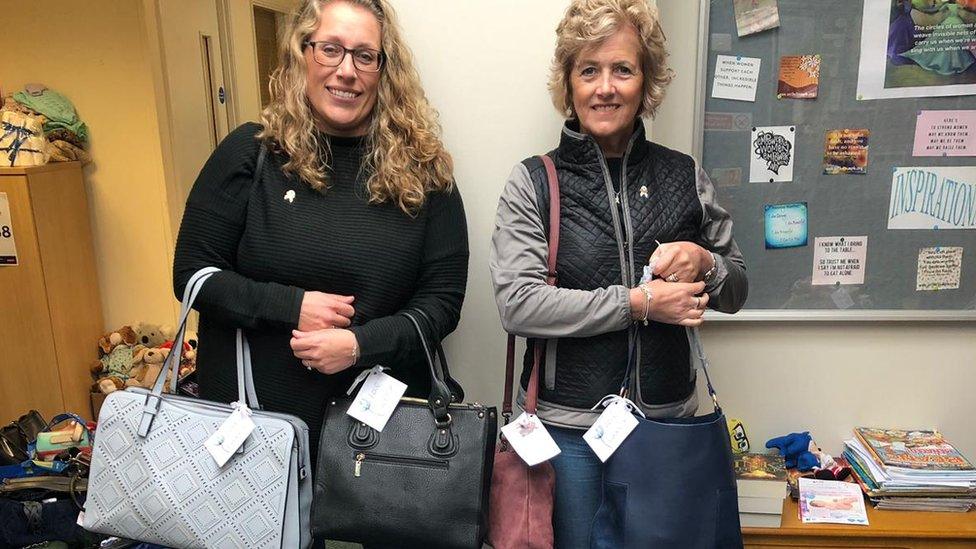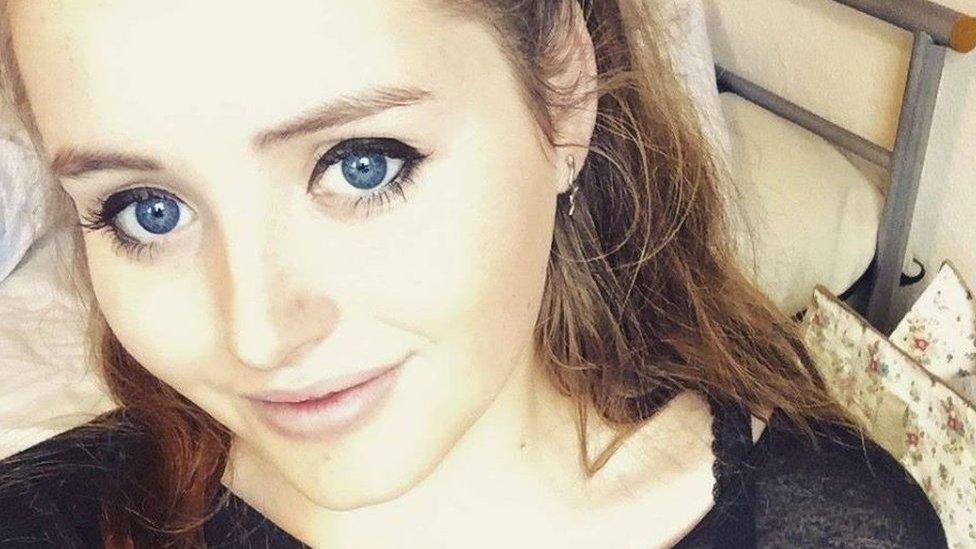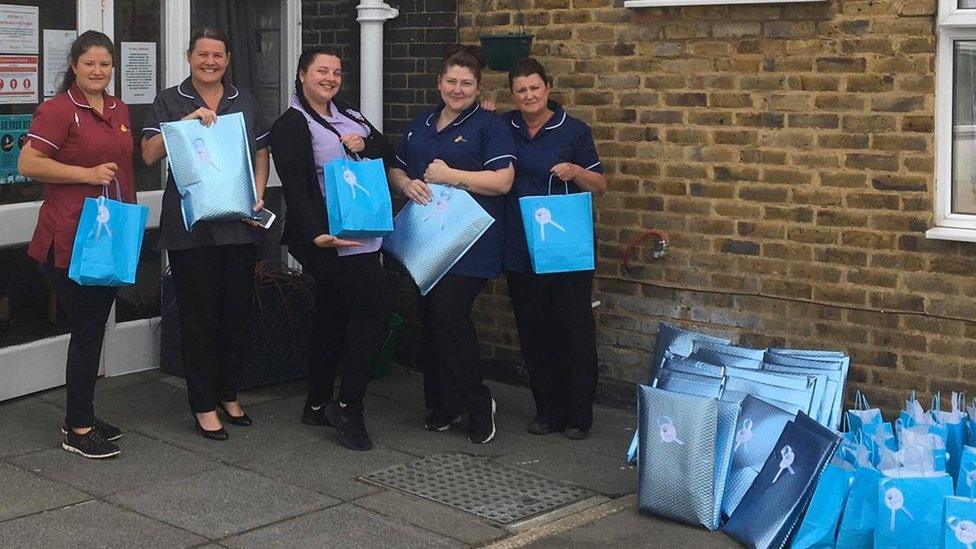Grace Millane's family welcome 'rough sex' defence ban
- Published

Grace Millane's family have donated hundreds of care packages to hospitals in her memory
The family of murdered British backpacker Grace Millane have described plans to outlaw the "rough sex gone wrong" defence as "fantastic news".
Miss Millane, from Essex, was killed in New Zealand in December 2018.
Her killer said she died accidentally after asking to be strangled during sex, but his defence was rejected and he was convicted of her murder.
Minister Alex Chalk said it would be made clear in the Domestic Abuse Bill the defence was not acceptable.
The new legislation, external is due to come into force in England and Wales later this year.
'Victim is re-victimised'
A man from New Zealand was convicted last November of murdering Miss Millane, from Wickford.
Her cousin said it was "horrendous" to have to listen to his lies during the court case.
Hannah O'Callaghan said: "It felt like Grace was on trial, yet not able to defend herself."

Grace's cousin Hannah O'Callaghan (left) and mother Gillian Millane (right) have donated thousands of handbags to refuges in her memory
She said of the planned new law: "It won't change things for us but hopefully it will stop any other family having to go through this.
"Men must not be allowed to use this defence as an excuse to kill women, knowing they can get a lesser sentence.
"Families won't have to sit and listen to only one side of the story while the victim is re-victimised and does not get the chance to tell their side."
Miss Millane's death provoked an outpouring of anger, partly because of her killer's attempts to explain her death. Personal details about the 22-year-old's sex life were discussed in court and reported around the world.

Grace Millane's murder provoked an outpouring of anger, partly because of her killer's attempts to explain her death
The case led to increased concerns about the defence and a campaign group formed to put pressure on ministers to ban it.
Fiona Mackenzie, founder of the We Can't Consent To This campaign, said she was "extremely thrilled" by the announcement and was waiting to see the proposals.
Ms Millane's family said they wanted to create a positive legacy from her death. They have set up an initiative called Love Grace x, external to help domestic abuse victims.
They have donated thousands of handbags packed with toiletries to refuges across the world, and have also been making care packages for patients, nurses, doctors and carers during the coronavirus pandemic.

Grace Millane's family have been making care packages for patients, nurses, doctors and carers battling coronavirus

Find BBC News: East of England on Facebook, external, Instagram, external and Twitter, external. If you have a story suggestion email eastofenglandnews@bbc.co.uk, external